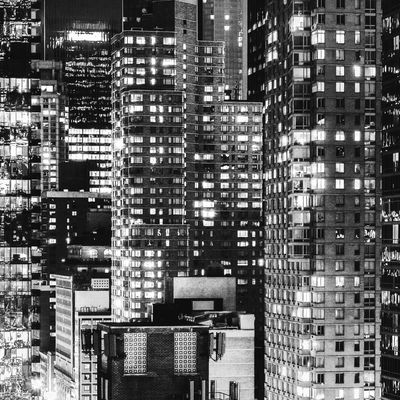
If smart-home tech is beginning to take off, it will happen differently here in New York City than elsewhere. Homes are older, rents are higher, landlords and building codes more stringent. Curious about what the landscape for smart-home tech looks like here, we talked to Luke Schoenfelder, CEO of Latch, a smart-lock company that’s working to install its smart-lock system in 1,000 apartment buildings in New York City for e-commerce site Jet, and is already working with Niido, Airbnb’s experiment in building housing.
You’ve been working in New York City; what concerns and what obstacles do you find when working in apartment buildings and installing these smart locks? Is it possible for a single tenant to install a smart lock or does it need to be the entire building?
From a regulatory perspective, there are really stringent building-code and fire-code requirements across the U.S., but even more so in New York City. Any product that gets installed in an apartment building has to meet those safety and security requirements. If you own your unit, like in a condo, if you are installing a code-compliant lock, then you can make that decision yourself, if your building lets you do it. But in most cases the building is going to install and maintain the system for all the residents in that building.
What about the smart locks that don’t require you to actually take the dead bolt out? Are those kosher for you to use?
I’m gonna go lock nerd here for a second. In New York City and most urban areas, you actually don’t have dead bolts, you have mortise-style locks. Latch makes the only mortise-style locks. So any of the retrofit products that you’re thinking of don’t actually work in an apartment-building context. If I wanted to install an August smart lock or some other system, it wouldn’t actually work for my door.
For someone who’s found that mythical New York City apartment, where the rent is reasonable and they think they’ll be able to stay for five or ten years, what are some smart-home projects that would add some value to your day?
I think it depends on what you’re priorities are. What are the tangible use cases where someone is really going to derive a lot of value? If I have the ability to remotely let someone into my apartment that couldn’t get in, that adds value. If I have the ability to listen to music in each room of the house and I really like music, that’s really high value. If I really like creating a certain ambience in my space, being able to control the lighting in a certain way really adds value. If I live in an apartment where I have individual control of the HVAC system, a smart thermostat to shut off the heat and cooling before I leave for work and turn it back on before I get home adds value. Beyond that, I scratch my head a little bit. There are a lot of gadgets out there to do any number of things, but the things that are really gonna change my life and my day-to-day are fairly limited in scope.
The housing stock in New York City is old. The housing turnover is much, much slower than what you see in other markets. Does that mean that even if the smart-home revolution is coming, it’s gonna hit New York later?
I think there are two things. One, I think the ease of retrofit becomes really critically important. How well does it play with the existing infrastructure of the building? We designed all our locks to retrofit into any building that’s a hundred years old. Any building that has an intercom is a building that we can very easily retrofit. That was an intentional design choice because we knew so much of the housing stock is old. Technologies that can do that, like screwing into a standard light socket or plugging into a standard light bulb, they’ll have an advantage.
The other thing is that while the housing stock turns over much more slowly here in New York because the demand is so high, the cost of rent is also much higher than most other markets. The marginal cost of installing smart-home technology as a percentage of rent is much lower than it would be in, say, Tulsa, Oklahoma, where there’s a lot more construction happening, but the same space is 25 percent of the price. Spending $1,000 on smart-home tech in a $1 million home versus spending $1,000 in a $100,000 home is just a really different conversation.





























